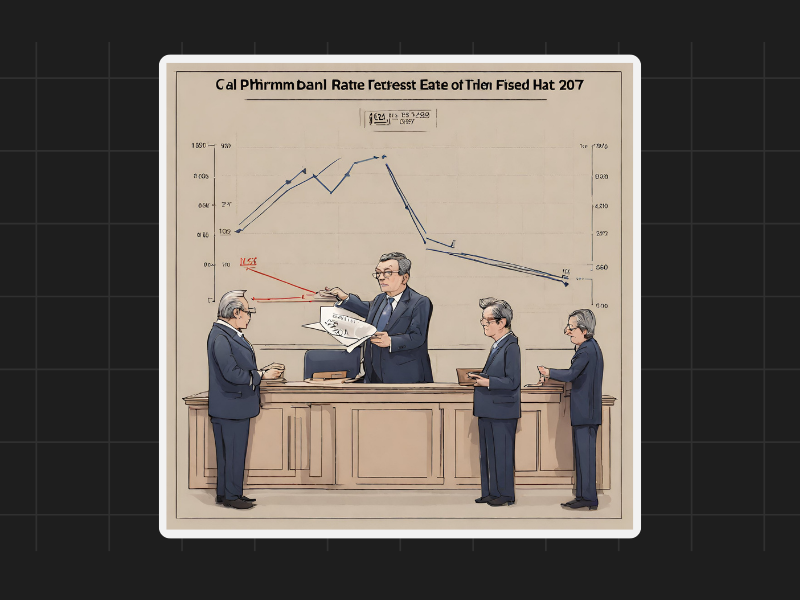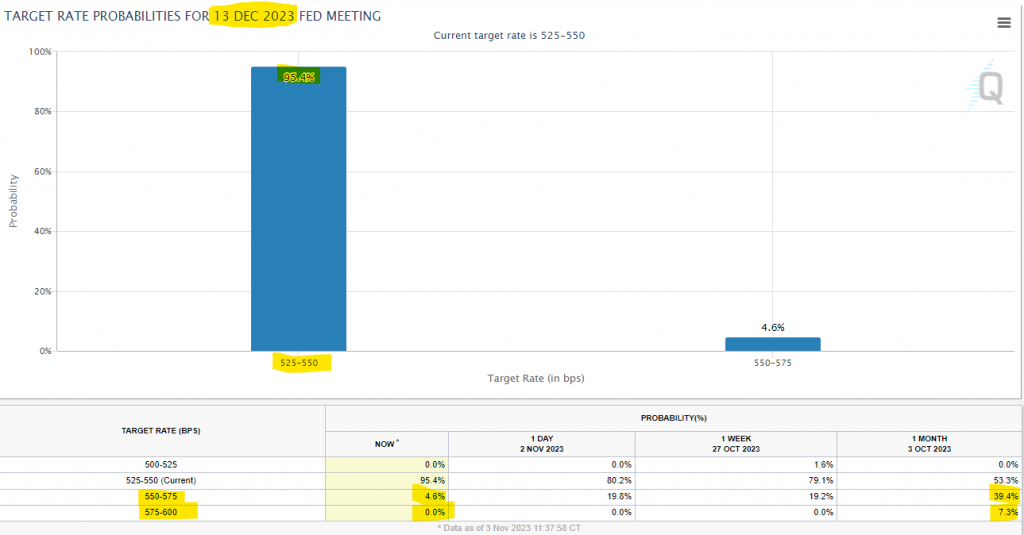
How Market Probabilities Impact Financial Forecasts
In this article, we will delve into the fascinating interplay between market probabilities and financial forecasts and explore the concept of the tail wagging the dog.
To illustrate this phenomenon, let’s examine a recent case study sourced from a Twitter post by Charlie Belello.
The focus of this case study is the target rate for the Fed funds, which is currently set at 5.25 to 5.5 percent. At the beginning of this study, there was a 38.5 percent chance that the rate would be hiked to 5.75 percent within a month. Additionally, there was a 4 percent probability of it reaching 6 percent. The target date for these potential rate hikes was set for December 13th, 2023.
However, within a span of just 23 days, the market probabilities experienced a significant shift. The likelihood of the rate staying within its current range skyrocketed to 90.9 percent, effectively nullifying the chances of a rate hike. Furthermore, the probability of a quarter percent hike dropped from 38 percent to a mere 9 percent, with the probability of a hike by December dropping to zero. Finally, within just six days, the probability of the rate staying put reached an astonishing 99.8 percent, leaving a negligible 0.2 percent chance of any hike.
This case study clearly demonstrates how rapidly market probabilities can change and influence financial forecasts. The markets, driven by their own intelligence and calculations, react to various factors such as Fed meeting minutes and other market indicators. These reactions directly impact the recalculation of probabilities and subsequently shape the financial landscape.
It’s important to note that this phenomenon is not unique to the Fed funds rate; it is a recurring pattern in various aspects of the financial world, including earnings forecasts. Earnings predictions often undergo dramatic shifts even within a single quarter. This is why quarterly earnings should be approached with caution when formulating long-term investment strategies. These shorter-term snapshots might not accurately represent the overall performance or prospects of a company.
Quarterly earnings are essentially rear-view mirror snapshots, providing insight into what has already happened rather than offering a crystal-clear vision of what lies ahead. Although we can use these snapshots to extrapolate future performance on our Excel sheets, real-life seldom adheres strictly to these extrapolations. The future is uncertain, and predictions can easily falter when confronted with unforeseen circumstances.
The example of the market probabilities surrounding the Fed funds rate demonstrates the inherent unpredictability of the financial world. Within a single month, the chances of a rate hike can transition from 38 percent to zero, while the likelihood of the rate remaining steady can surge from 57 percent to 100 percent. These sudden shifts remind us that anything can happen in the markets, and relying solely on probabilities can be a risky strategy.
Moreover, it’s essential to recognize that financial forecasts are not the drivers of market movements; rather, they are lagging indicators of these movements. The market takes the lead, and forecasts follow suit. This principle, known as the BBC Principle Bhaav Bhagwan che, holds true across various facets of the market. Market movements occur first, and subsequent predictions and forecasts attempt to make sense of these movements.

If you have any questions, please write to support@weekendinvesting.com









